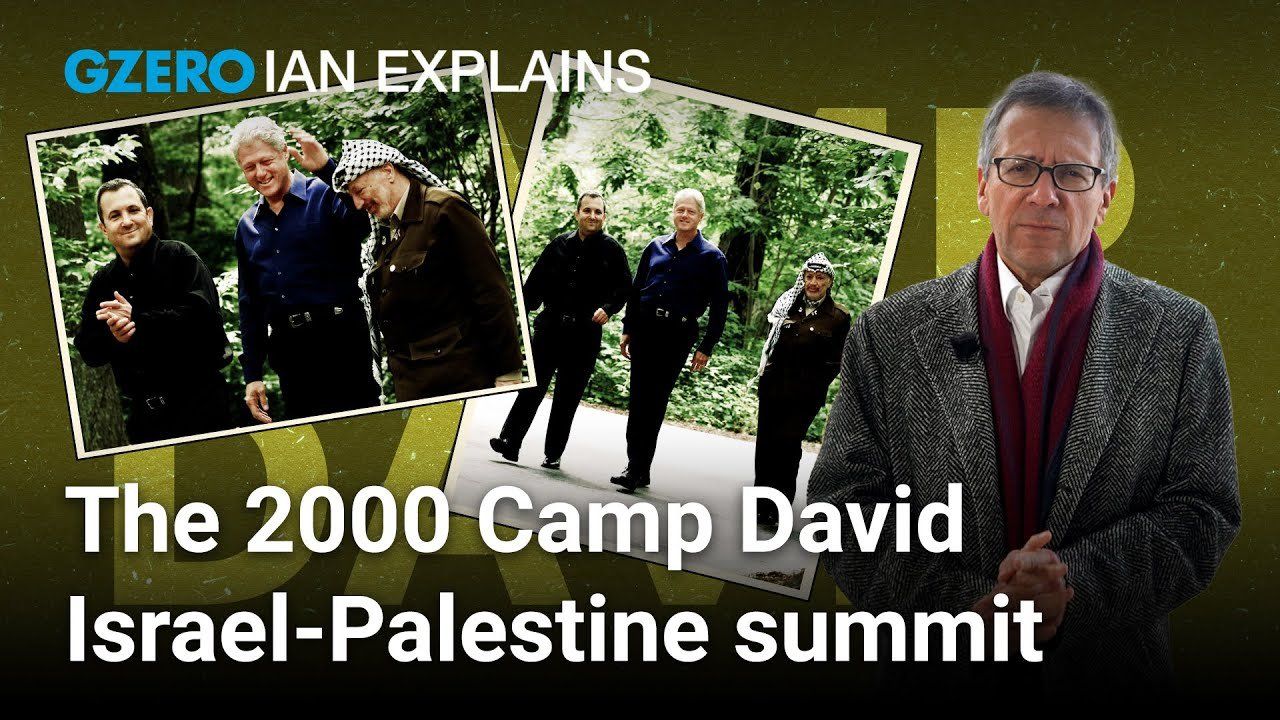Ian Explains
Ian Explains: Why Israeli-Palestinian peace talks at Camp David came close but failed in 2020

Ian Explains: Why Israeli-Palestinian peace talks at Camp David came close but failed | GZERO World

The last best chance at peace between Israel and Palestine included bowling and baseball at a wooded retreat in rural Maryland.
Twenty-three years ago at Camp David, US President Bill Clinton welcomed Palestinian Liberation Organization chairman Yasser Arafat and Israeli Prime Minister Ehud Barak for a two-week summit in a bucolic setting. The goal: find an enduring solution to the Israel-Palestine crisis.
But as Ian Bremmer explains, as the three leaders strolled together down a leafy Camp David road, they couldn’t have been further apart in their expectations for the summit. Ehud Barak, the young, leftist Israeli Prime Minister—fresh off a series of failed negotiations with Syria—had pushed hard for the summit, arguing that it was the “pressure cooker” that would require him and Arafat to make real progress on a two-state solution. His strategy was to either secure a deal or expose Arafat as an unreliable partner.
Meanwhile, Yasser Arafat was treading water of his own. Given his constituency’s mistrust of Israel and his resentment of Barak’s recent focus on Syria, Arafat was in no hurry to reach an agreement. He had warned Clinton ahead of the summit that his side was not ready to come to the table. Nor did he trust Barak to follow through on his promises.
This is the story of what happened at those talks and why the best chance in a generation for peace in the Middle East failed.
For many in Iran, it’s a waiting game for how long Ayatollah Khamenei has left to live.
In a 30-minute call on Thursday, President Donald Trump reportedly told Ukrainian President Volodymyr Zelensky he wants to end the war with Russia as soon as possible — aiming for a deal by summer, but ideally within weeks.
Former British ambassador to the U.S. Peter Mandelson leaves his residence after he was released following his arrest by London police on Monday on suspicion of misconduct in public office, following the release of U.S. Justice Department files linked to the late financier and convicted sex offender Jeffrey Epstein, in London, Britain, February 26, 2026.
The ghost of Jeffrey Epstein continues to haunt the world.
Think you know what's going on around the world? Here's your chance to prove it.